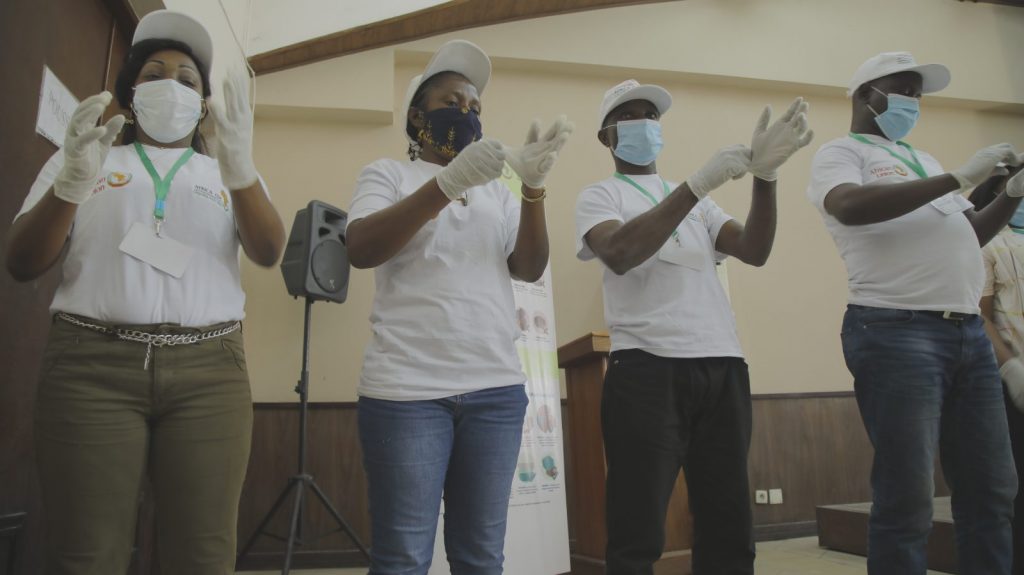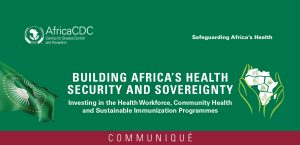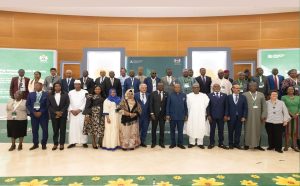A three-day training of trainers on infection prevention and control (IPC) for COVID-19 was concluded in Kinshasa, Democratic Republic of Congo (DRC) yesterday, 1 September 2020. The training was organized by the Africa Centres for Disease Control and Prevention (Africa CDC) in partnership with the Directorate of General Disease Control of the Ministry of Public Health and the national port health programme of the DRC. Thirty healthcare workers from Kongo Central and Kinshasa provinces participated in the training.
“COVID-19 is highly contagious, the best way to deal with it is prevention. Healthcare workers face a high risk of COVID-19 infection because of their exposure to COVID-19 cases, and we don’t want our healthcare facilities to become infection centres. This training is to educate our health workers on how to protect themselves and their clients from being infected,” said Dr Aruna Aaron, Head of the Directorate of General Disease Control, DRC Ministry of Public Health.
The DRC shares borders with nine other African countries and has experienced several disease outbreaks in recent years including several outbreaks of Ebola virus disease. The training, therefore, aimed to empower port health and health facility-based officers with IPC skills so they can protect themselves while attending to clients and travellers. This is very important as countries begin to ease lockdown and open their borders to international travel across the globe.
The training focused on the standard and complementary precautions in healthcare settings, hospital hygiene, how to use and properly manage personal protective equipment, decontamination of surfaces, sterilization, disinfection, and waste management. The third and last day of the workshop featured practice sessions at Vijana Hospital, one of the COVID-19 care sites, and at the Ngobila Beach and Port on the border with Congo Brazzaville.
“I found the training very interesting. It’s true that we learned all this at university, but there is always an added value in daily practice. Through the training, we learnt the need to observe hygiene and waste management standards, including hygiene of the patient and the hospital environment to prevent infections,” said Ornella Mafana, a doctor and participant from Kinshasa.
Dr Jean-Paul Buhalagarha, coordinator of Africa CDC COVID-19 mission support in DRC, encouraged the participants to apply the lessons learned from the training in their professional practice and to share the knowledge with other healthcare workers in their facilities and communities.
He said: “What we want to achieve through this training is to reduce infections among healthcare workers. Available data shows that 3.4 percent of COVID-19 cases in the DRC in June 2020 was among healthcare providers who became infected while trying to save lives. This is the second training we are conducting for these workers to make sure that we reduce that figure as much as possible, we held the first training four months ago.”







